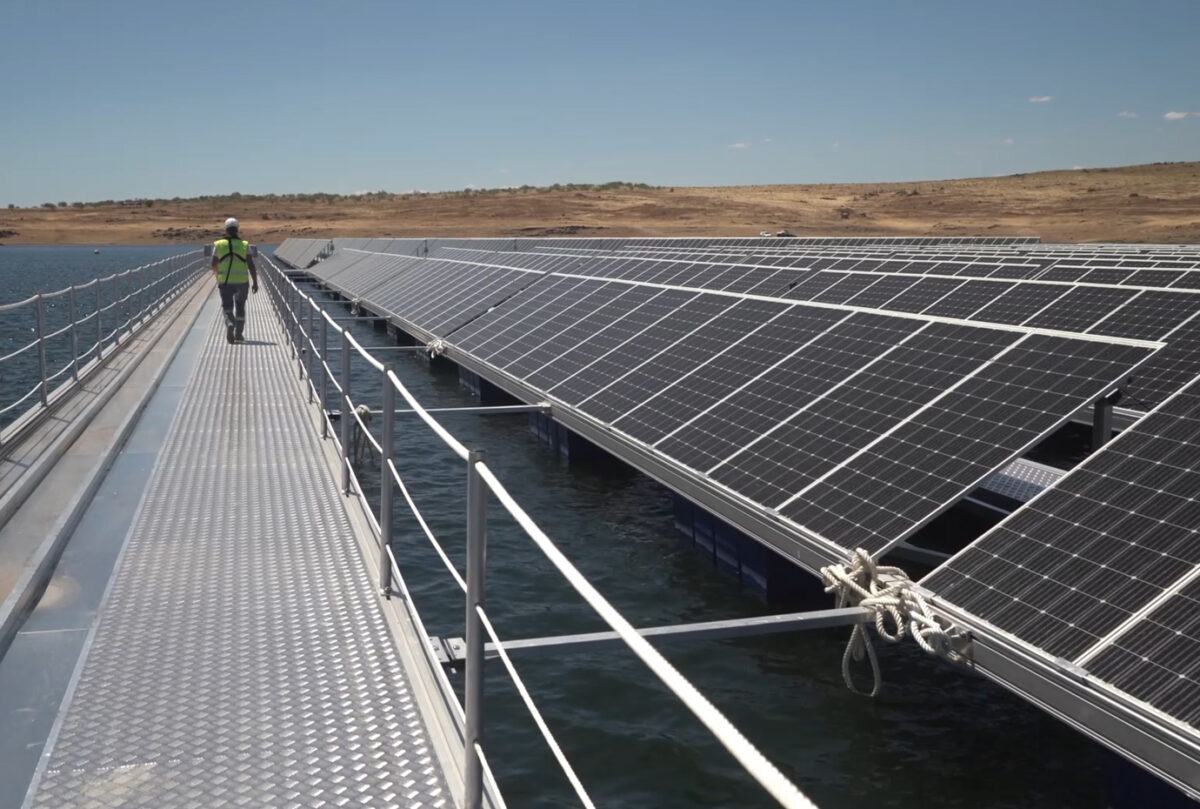Researchers from the Renewable Energies Chair at the University of Évora in Portugal have concluded in a study on floating photovoltaic systems in Portugal that the installed capacity can exceed the national goal of 7 GW, defined in the National Energy and Climate Plan (PNEC) 2030 for PV energy in the electrical sector.
Researchers identified the region of Alentejo in south-central and southern Portugal as the area with the greatest potential as it combines water surfaces and solar resources.
The University of Évora said in a statement that even applying an 85% reduction to the total surface of water available at the national level, “the potential of floating photovoltaic solar energy systems can reach at least an estimated national capacity of 10.8 GW.”
“The analysis results from a mapping of the potential areas for floating photovoltaic solar systems applied in the national territory, establishing a relationship between the availability of solar radiation and the geographical distribution of the bodies of water in the different regions of the country,” said Luís Fialho, a researcher at the University of Évora's Renewable Energies Chair.
The renewable energy department The information shows that the Renewable Energy Chair is currently supervising Sierra Brava, the largest European experimental plant for floating photovoltaic systems, owned by Acciona Energía, which comprises five different technologies with a total power of 1,125 MW.
This content is protected by copyright and may not be reused. If you want to cooperate with us and would like to reuse some of our content, please contact: editors@pv-magazine.com.




2 comments
By submitting this form you agree to pv magazine using your data for the purposes of publishing your comment.
Your personal data will only be disclosed or otherwise transmitted to third parties for the purposes of spam filtering or if this is necessary for technical maintenance of the website. Any other transfer to third parties will not take place unless this is justified on the basis of applicable data protection regulations or if pv magazine is legally obliged to do so.
You may revoke this consent at any time with effect for the future, in which case your personal data will be deleted immediately. Otherwise, your data will be deleted if pv magazine has processed your request or the purpose of data storage is fulfilled.
Further information on data privacy can be found in our Data Protection Policy.